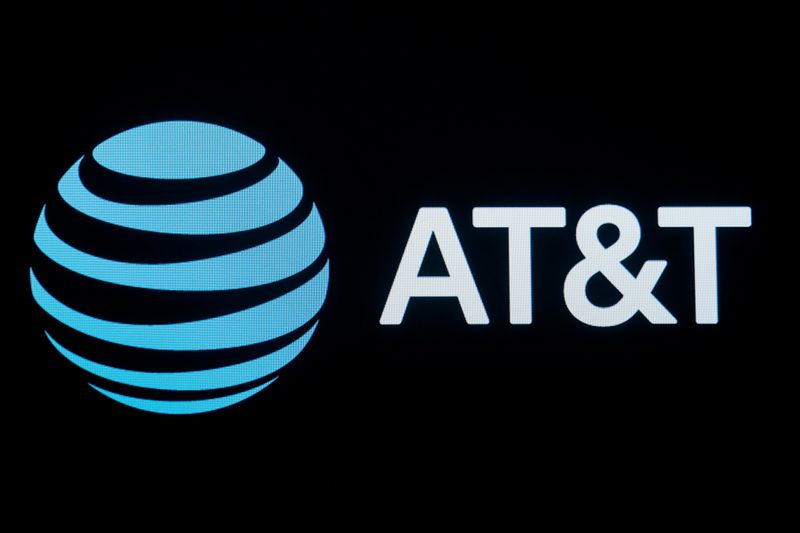By Sheila Dang and Neha Malara
(Reuters) - AT&T Inc said on Thursday it lost monthly phone subscribers and suffered a $2.8 billion revenue decline due to delayed movie releases and advertising shortfalls in the second quarter as the novel coronavirus pandemic ravaged its business.
Shares of the company were down almost 2% in morning trading.
AT&T, which has invested heavily to transform itself into a media and telecommunications conglomerate, reported 36 million subscribers for both its premium TV channel HBO and the new streaming service HBO Max, which launched in May. In the first quarter, HBO had about 33 million customers.
As the health crisis led to widespread stay-at-home orders to curb the spread of the virus and upended the economy, it has particularly hurt AT&T's media business due to the loss of live sports broadcasts and delayed productions.
"I don't expect we're going to see much change in the third quarter around those challenges that are in front of us," AT&T Chief Executive John Stankey said during an earnings call with analysts.
Revenue for the WarnerMedia segment, which includes HBO, fell 22.7% to $6.8 billion. It has thrice postponed the release of Christopher Nolan's highly anticipated movie "Tenet" as theater chains remained largely shut.
The pandemic had a $1.5 billion impact on WarnerMedia revenue, AT&T said during the call with analysts.
In the second quarter, AT&T lost 151,000 mobile phone subscribers who pay a monthly bill, which included the loss of 338,000 customers who stopped paying their bills, but were kept on the network as part of a federal program to ensure Americans remain connected on their cell phones during the pandemic.
Analysts had expected the company to add 6,800 subscribers, according to research firm FactSet.
AT&T said it had started to see foot traffic return as retail stores begin to reopen with the loosening of lockdown restrictions, and that new phone launches later this year could help improve retail sales.
The company lost 886,000 so called "premium TV" subscribers, which includes satellite TV provider DirecTV and a smaller number of U-Verse customers, as viewers switch to cheaper online video services.
Excluding items, AT&T earned 83 cents per share, above analysts' estimates of 79 cents per share.

Total quarterly revenue fell nearly 9% to $41 billion. Analysts on average had expected $41.10 billion, according to IBES data from Refinitiv.